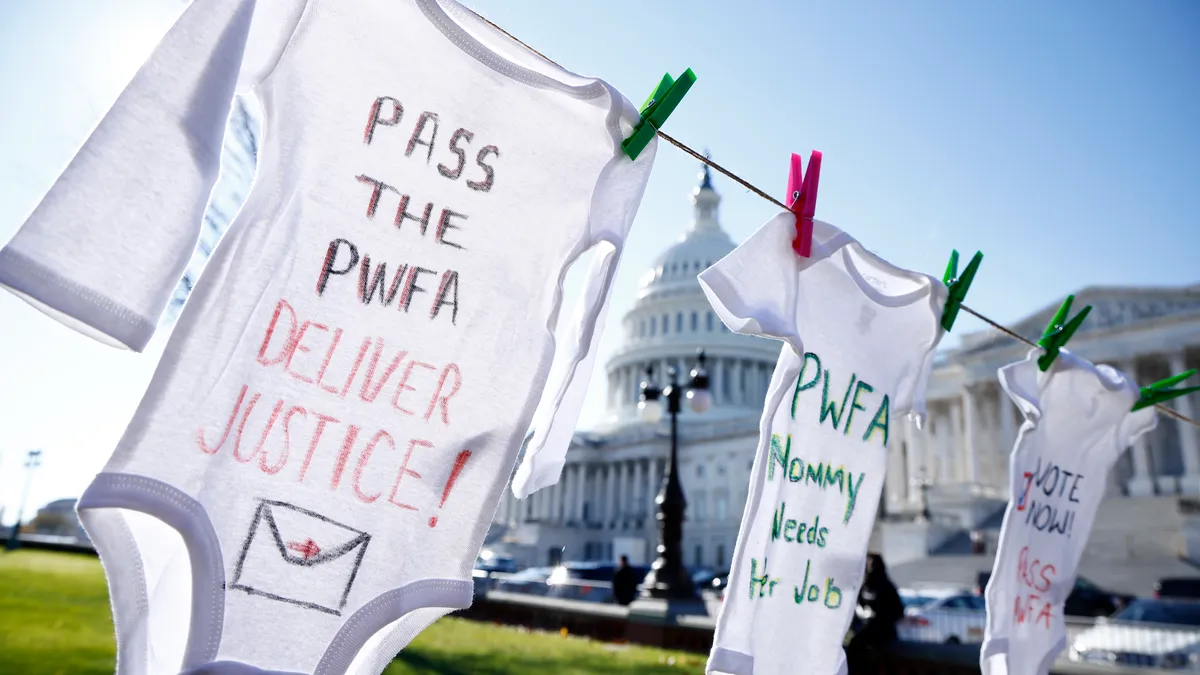Women are more likely than men to take a leave of absence from work, resulting in greater negative effects to their finances, emotional health and career, according to an Oct. 28 report from Standard Insurance Company.
Only 44% of women said their employer makes accommodations for women’s health issues, indicating an area where employers can strengthen leave policies to boost loyalty, productivity and well-being, the report found.
“Supporting women at work means being there when they need to step away,” Amy Malagamba, vice president of marketing at The Standard, said in a statement. “Our research shows that when employers address women’s financial and mental health needs during and following leave, they build a more loyal, engaged and productive workforce.”
In a survey of 5,000 workers, 53% of women reported taking a leave of one month or more, compared to 47% of men. Although 61% of women said their employer makes accommodations for pregnancy, only 44% said they feel supported for broader women’s health issues.
In addition, 59% of women said taking leave negatively affected their finances, while 36% reported negative effects on their emotional health.
Nearly a quarter of women said they take leave for mental health, which is also the top reason why women said they don’t return to work.
However, accommodations can make a difference, the report found. Women who received employer accommodations experienced fewer negative effects on their productivity and finances.
The Standard recommended several considerations for employers, such as ensuring that leave and options for accommodations are openly discussed and valued. As part of this, companies can provide access to mental health benefits, including paid mental health days, counseling and employee resource groups.
Beyond that, employers can communicate benefits clearly — particularly around health, caregiving and financial wellness — and offer comprehensive return-to-work programs that help women to reintegrate with flexibility and remain productive.
Women are experiencing declines in well-being, including mental, financial and physical health, a Guardian survey confirmed. HR can help by supporting work flexibility, having open conversations around topics such as caregiving and incorporating benefits for fertility challenges and menopause concerns, the report found.
In particular, flexible work arrangements are considered “non-negotiable” for reaching workplace gender equality, according to a report from UN Women. Flexible work can better accommodate household, child care and caregiving responsibilities, the organization said.














